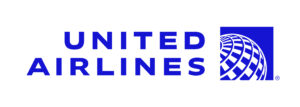
STEM & Aviation Empowerment Tour SOUTH AFRICA
2024-09-11
-
South Africa
South Africa is the southernmost country on the African continent. It is renowned for its great natural beauty and cultural diversity which has made the country a favored destination for travelers since the ending of apartheid in 1994.
Ethnic Groups
With the apartheid system, the government, controlled by the minority white population, enforced segregation between government-defined races in housing, education, and virtually all spheres of life, creating in effect three nations: one of whites (people primarily of British and Dutch ancestry), one of Blacks (people such as the San hunter-gatherers of the northwestern desert, the Zulu herders of the eastern plateaus, and the Khoekhoe farmers of the southern Cape regions); and one of “Colored’s” (mixed-race people) and ethnic Asians. The apartheid regime was disdained and vehemently opposed by much of the world community, and by the mid-1980s South Africa found itself among the subject of economic and cultural boycotts that affected almost every aspect of life.
Eventually forced to confront the untenable nature of ethnic separatism in a multicultural land, the South African government of F.W. de Klerk (1989–94) began to repeal apartheid laws. That process in turn set in motion a transition toward true electoral democracy, which culminated in the 1994 election of a government led by the Black majority under the leadership of the long-imprisoned dissident Nelson Mandela. Since then, the country has made remarkable progress in establishing social equity in a short period of time.
South Africa has three cities that serve as capitals: Pretoria (executive), Cape Town (legislative), and Bloemfontein (judicial). Johannesburg, the largest urban area in the country and a center of commerce, lies at the heart of the populous Gauteng province. Durban, a port on the Indian Ocean, is a major industrial center. East London and Port Elizabeth, both lie along the country’s southern coast, are important commercial, industrial, and cultural centers.
Today, South Africa enjoys a relatively stable mixed economy that draws on its fertile agricultural lands, abundant mineral resources, tourist attractions, and highly evolved intellectual capital. Greater political equality and economic stability, however, do not necessarily mean social tranquility. South African society at the start of the 21st century continued to face steep challenges: rising crime rates, ethnic tensions, great disparities in housing and educational opportunities, and the AIDS pandemic.
Education
South Africa’s education system is facing major challenges. Due to a lack of financial support, smaller schools in rural areas have to close and a lack of sufficiently educated and motivated teachers as well as a lack of facilities places a huge strain on the system. The financial burden to the local governments as well as to the student’s families, who often belong to the previously disadvantaged population, is high. The majority of students still live in poor conditions in rural areas or the growing townships of the major cities. The standard of education in South Africa varies from region to region and school to school.
Although some recent statistics suggest that the education system is failing the majority of children, quite some progress was made to increase the levels of education in South Africa. Efforts to address inequality, overcrowding and disastrous sanitary situations need to be addressed and it will certainly take a long time to remedy the lack of funding and initiative of the past. Major developments such as the introduction of mandatory early childhood education have been implemented already and an increased expenditure per student will improve the situation.
Objectives
An initiative of Aviation and Aerospace professionals conducting outreach, inspiring, motivating, and empowering the next generation with a focus on STEM and aviation & aerospace and providing resources and inspiration for students with limited opportunities, especially girls and women. Volunteers are successful African & Caribbean individuals in STEM and aerospace fields who overcame challenges to be where they are today.
Typical Day: Introduction and School Visits
- Arrival and Welcome:
- Begin the day with a welcome session, introducing our organization’s mission and the purpose of the outreach.
- Overview of STEM and Aerospace:
- Conduct an introductory session on STEM fields, emphasizing the importance of science, technology, engineering, and mathematics in various industries, with a specific focus on aviation and aerospace.
- Visit to Local Schools:
- Tour underprivileged schools in the area.
- Conduct engaging presentations on STEM and aerospace opportunities.
- Facilitate hands-on activities or demonstrations to ignite interest.
Interactive Workshops and Career Guidance
STEM Workshops:
- Interactive STEM workshops, covering basic principles and hands-on activities.
- WeWot and Guest Speakers:
- Professionals from the aerospace industry will share their career journeys.
- Allow students to ask questions and gain insights into potential career paths.
- Discuss potential career trajectories and scholarships in aviation and aerospace.
- A day at the local airport.
- Allow students to witness real-world applications of STEM in aerospace.
- Allow students a discovery flight on an airplane.
- Networking session where students can interact with volunteers, professionals, and each other. Top of FormBottom of Form
Donate by clicking here
Our partners
